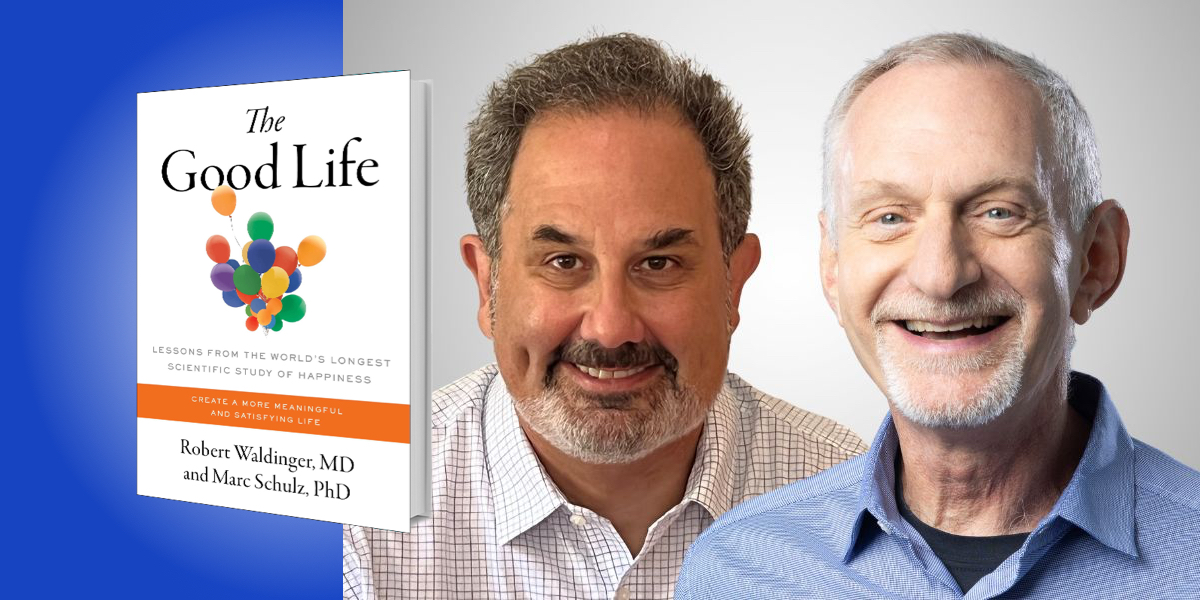What makes for a good life? According to the most comprehensive scientific study of happiness, the answer to these questions may be closer than you recognise!
What makes life fulfilling and meaningful? The simple but surprising answer is relationships. The stronger our relationships, the more likely we will live happy, satisfying, and healthier lives. The Harvard Study of Adult Development reveals that the strength of our connections with others can predict the health of our bodies and brains as we go through life.
Physical fitness is an ongoing practice: I don’t go to the gym today and then come home and say, ‘Good. I’m done. I don’t ever have to do that again.’ The same is true with relationships.
Since 1938, the Harvard Study of Adult Development led by Robert Waldinger has examined what makes people prosper. After beginning with 724 participants, Bob interviewed them, requested them to complete questionnaires, and gathered information about their physical health. Next, he observed participants fall in and out of relationships and found that good connections lead to health and happiness. And these relationships must be cultivated. Finally, he demonstrated that the power of someone’s relationships with others could predict their body and brain health as they go through life.
Bob Waldinger’s TED Talk about the Harvard Study, “What Makes a Good Life,” has been viewed more than 42 million times and is one of the ten most-watched TED talks ever. Now all these pearls of wisdom can be found in The Good Life, a unique book by Robert Waldinger, MD ’78, an HMS professor of psychiatry, part-time at Massachusetts General Hospital, and Marc Schulz, a professor of psychology at Bryn Mawr College. So what makes life fulfilling and noteworthy? The authors contend that the easy but unexpected explanation is relationships.
The wisdom in the book emerges from the individual stories of hundreds of participants in the eighty-year Harvard study, strengthened by research findings from this and many other studies. For example, good relationships positively impact our health and well-being, and the significance of creating new and developing existing associations no matter one’s age! Incredibly the study observed people in their 80s.
“We wanted to look back at them at midlife to see if we could predict who would grow into a happy, healthy octogenarian and who wouldn’t. So we gathered everything we knew about them at age 50 and found that it wasn’t their middle-aged cholesterol levels that predicted how they would grow old; it was how satisfied they were in their relationships. The people who were the most satisfied in their relationships at age 50 were the healthiest (mentally and physically) at age 80.”
Here are my takeaways from the book
- Social Intelligence. Take stock of your connections. “Don’t get hung up on numbers, Dr Waldinger said. It’s the quality of your relationships, not the quantity, so distinguish what is most fulfilling. You don’t need to be an extrovert to enhance your social fitness. You can engage with others in quieter settings with smaller, undisturbed activities. But do make time for exchanges, however brief they are!”
- Facilitate compassion. Compassion happens through connecting with someone by identifying with them. Positioning yourself in another’s predicament, sharing their inner life, and …
- Ask questions. We need to ask more questions. There doesn’t constantly have to be an agenda for asking questions. Sometimes the joy is in the asking itself. Inquiry immerses us in life and learning and helps us stop looking at things through the same familiar lens.
- Volunteer. Small actions have a powerful impact. Being a volunteer has lots of advantages. It can bring sense and meaning to your life while boosting your self-esteem and well-being. Volunteering can also reduce stress and relieve symptoms of sadness. In addition, volunteering can enhance your relationships and have a favourable influence on your community.
What makes for a happy life, a fulfilling life? A good life? According to the directors of the Harvard Study of Adult Development, the most comprehensive scientific study of happiness ever conducted, the answer to these questions may be closer than you realise.
I loved the personal stories and the inner wisdom bolstered by research findings from this and many other studies. But the thing I will hang onto forever is that, as The Good Life shows us, it’s never too late to strengthen your relationships and never too late to build new ones. As the authors say, “People find love in their 70s and 80s when they don’t expect to. I want to leave people with the fact that, at least from our data, if you think you know it’s too late, think again: you don’t know….” It is never too late!
If you don’t have people to help you weather the inevitable stresses that come along, the body stays in a low-level fight-or-flight mode, with higher levels of circulating stress hormones and higher levels of inflammation, and we know that those things gradually wear away many different body systems.
With warmth, wisdom, and wonderful life stories, The Good Life shows us how to make our lives happier and more meaningful through our connections to others.


